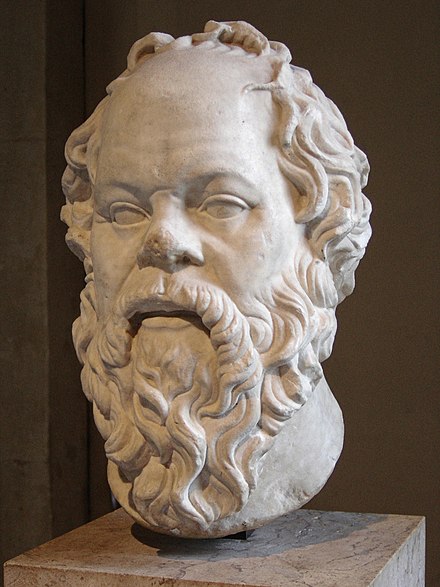
Orality is thought and verbal expression in societies where the technologies of literacy (especially writing and print) are unfamiliar to most of the population. The study of orality is closely allied to the study of oral tradition.
The term "orality" has been used in a variety of ways, often to describe, in a generalised fashion, the structures of consciousness found in cultures that do not employ, or employ minimally, the technologies of writing.
Walter J. Ong's work was foundational for the study of orality, and exemplifies the fact that despite the striking success and subsequent power of written language, the vast majority of languages are never written, and the basic orality of language is permanent.[1]
In his later publications Ong distinguishes between two forms of orality: 'primary orality' and 'secondary orality'. Primary orality refers to thought and expression un-touched by the culture of writing of print; secondary orality is explained by Ong as oral culture defined (implicitly influenced) by the written and printed word, and includes oral culture made possible by technology such as a newscaster reading a news report on television.
In addition, 'residual orality' is also defined – it is the remnants, legacy, or influence of a predominantly oral culture carried over into the written realm – an example might include the use of dialogue as a philosophical or didactic tool in written literature, such as used by the Greek thinker Plato.
Before writing became a way for many cultures, we had orality. Unfortunately much of the retained orality has been lost or drastically changed. Those that were able to be preserved gives us insight to past cultures and just how much we have evolved since then.[2] In Orality and Literacy (2nd ed. Ong 2002), Ong sums up his own work over the previous three decades as well as the work of numerous other scholars. With regard to oral tradition and primary orality he draws on pioneering work by Milman Parry, Albert B. Lord, and Eric A. Havelock. Marshall McLuhan was among the first to fully appreciate the significance of the Ong's earlier work about print culture and the written and printed word as a technology. In his work, The Gutenberg Galaxy McLuhan 1962, McLuhan quotes and discusses works by Ong in the 1950s regarding print culture.[3]
'Primary orality' refers to thought and its verbal expression within cultures "totally untouched by any knowledge of writing or print."[4] Ong argues that the immediacy of sound, and the longevity of writing, correspond to the intrinsically different ways in which oral and literate societies and people function.[5]
In his studies of the Homeric Question, Milman Parry was able to show that the poetic metre found in the Iliad and the Odyssey had been 'packaged' by oral Greek society to meet its information management needs. These insights first opened the door to a wider appreciation of the sophistication of oral traditions, and their various methods of managing information.[6] Later, ancient and medieval mnemonic tools were extensively documented by Frances Yates in her book The Art of Memory (Yates 1966).

‘Residual orality’ refers to thought and its verbal expression in cultures that have been exposed to writing and print, but have not fully ‘interiorized’ (in McLuhan's term) the use of these technologies in their daily lives. As a culture interiorizes the technologies of literacy, the ‘oral residue’ diminishes.
It has been a habit of literate cultures to view oral cultures simply in terms of their lack of the technologies of writing. This habit, argues Ong, is dangerously misled. Oral cultures are living cultures in their own right. While literacy extends human possibilities in both thought and action, all literate technologies ultimately depend on the ability of humans to learn oral languages and then translate sound into symbolic imagery.
Drawing on hundreds of studies from anthropology, linguistics and the study of oral tradition, Ong summarizes ten key aspects of the 'psychodynamics of orality', including the following. These are subject to continuing debate.